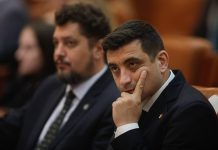The EU has sealed an agreement on new legislation relating to freedom of the media, which seeks to increase transparency on the ownership of media companies and on institutional advertising, to better protect journalists and their sources as well as to strengthen the independence of public media.The European Union wants to better protect journalists and media companies from political influence and has agreed on the „European Media Freedom Act.’.
„The agreement reached (…) is a testament to our commitment to fostering free and pluralistic media. For the first time, there will be safeguards in European law”, German MEP Sabine Verheyen (EPP), who spearheaded the text through parliament, said.
Vera Jourova, vice president of the European Commission for values and transparency, said the EU was „not regulating the media, we are regulating the space for media”.
German newspaper and magazine publishers, however, maintained a previously critical stance. The Federal Association of Digital Publishers and Newspaper Publishers (BDZV) and the Media Association of the Free Press (MVFP) said that „while the press is struggling with economic, regulatory and competitive challenges, the EU is tightening a corset that does not address any of the problems and instead endangers press freedom”.
The major stumbling block that caused the negotiations to extend into the final weeks of the Spanish presidency of the Council of the EU was the inclusion of a clause that would have opened up the ban on spying on journalists or their sources for reasons of „national security”, an article rejected by the European Parliament, reports Agerpres.
Several member states had previously insisted on allowing exceptions to the spying ban in the name of national security, causing great concern among professional associations and other press freedom advocates.
After intense „lobbying” by press associations and a battle that threatened to derail the negotiations, the law does not include this exception but reserves it to a recital and makes a general mention of „respecting the responsibilities of the Member States”, sources close to the negotiations said.
The European Parliament considered this a victory.
Verheyen said any surveillance, such as the use of spyware in journalists’ devices, would only be possible for serious crimes and if there was a judicial decision.
The media freedom law also contains some safeguards to protect the independence of public media, such as the requirement that the criteria for appointing and dismissing senior positions, the duration of their mandates and sufficient funding to fulfil their mission must be established by law in advance.
Swiss media company Ringier (which owns Romania’s Libertatea daily and the Gazeta Sporturilor (GSP) publication) announced plans to cut jobs at Libertatea earlier this month, citing the increasing shift to online media.
Journalists of the affected dailies claim to have been pressured by management into submitting any articles on online betting companies – who are powerful in the Balkans and are a major source of ad revenues – for vetting ahead of publication.
Another crucial point in the legislation is the issue of moderation of journalistic content by online platforms. There should also be clearer rules for the relationship between media companies and large online platforms such as Facebook, which belongs to the Meta group, or Google.
The European Commission has decided to open an infringement procedure against social media platform X and its owner Elon Musk – an unprecedented investigation, the first under the new Digital Services Act (DSA). There is no fixed deadline for the investigation under the DSA.
The draft European Media Freedom Act will become a law once formally adopted by the European Parliament and member states. EU countries can introduce stricter or more detailed national rules than those in the law.

















